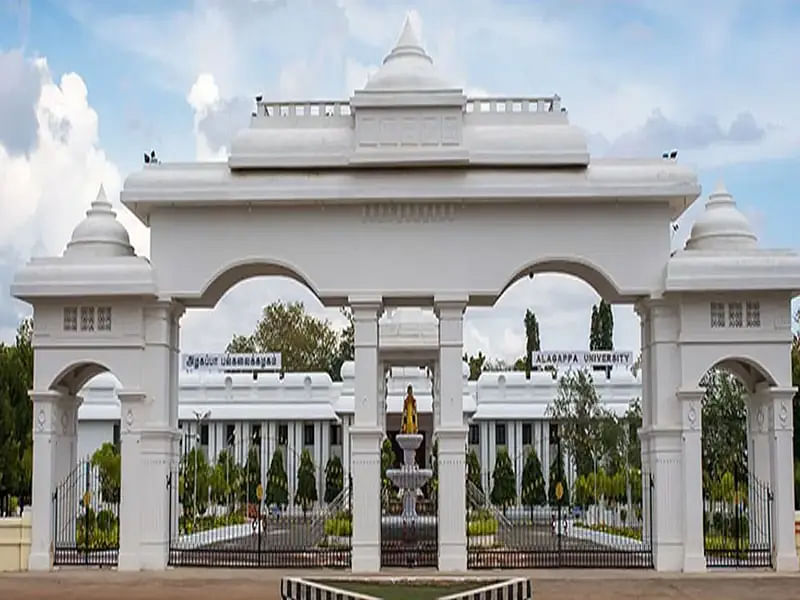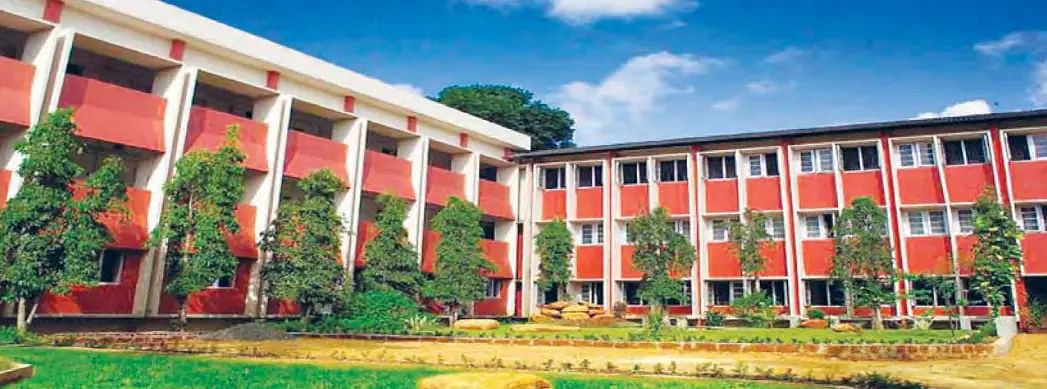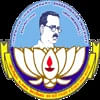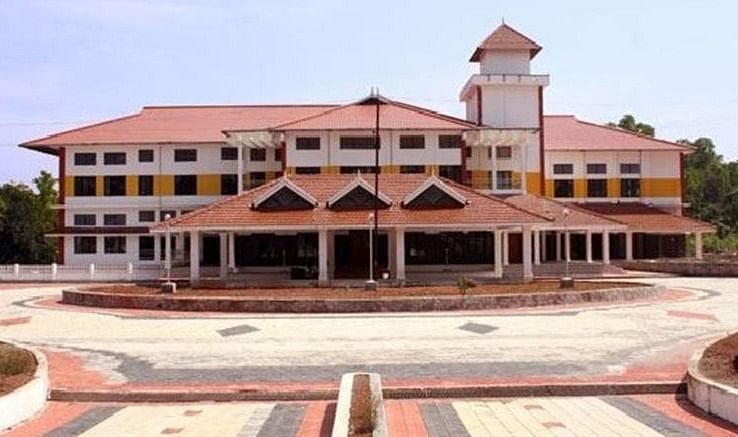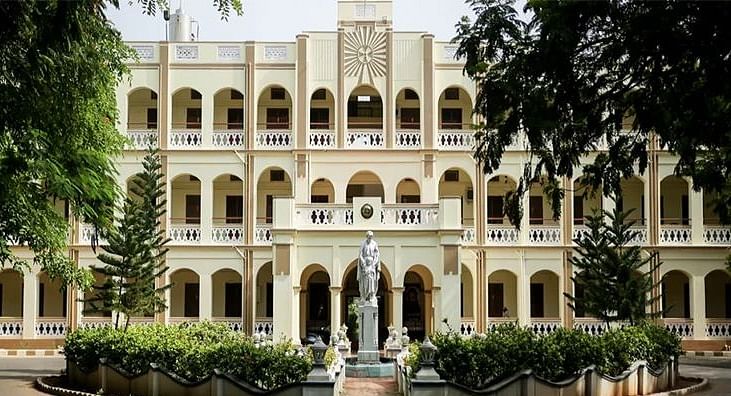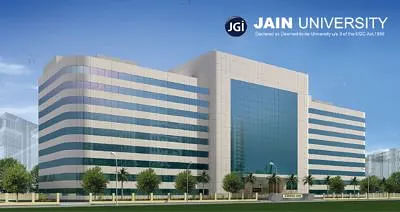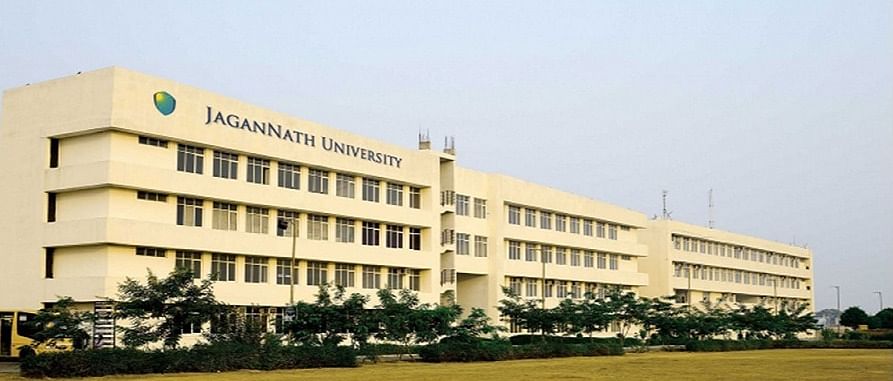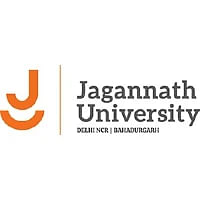M.Voc [Master of Vocation] Syllabus and Subjects

M.Voc curriculum offers a blend of vocation and business management concepts for a duration of 2-years consisting of 4 semesters. The syllabus aims at training the students to specialize in various fields and to acquire the skills required. At the end of the course, the students will be trained practically to deal with the complex challenges faced in professional work environments and provide optimum solutions.
Semester Wise M.Voc Syllabus
M.Voc syllabus helps the students in becoming efficient and skillful. The semester-wise M.Voc subjects list is given below.
| SEMESTER I | SEMESTER II |
| Communication Skills Development | Human Rights |
| Human Resource Management | Language Skills |
| Experiential Learning | Environment Studies |
| Legal Environment of Business | Industry Assessment |
| Managerial Skills Development | Seminar |
| Financial Accounting | Presentation |
| SEMESTER III | SEMESTER IV |
| Research Methodology | Internship |
| Technical Hands-on-Training Lab | Report Work and Publication |
| Corporate Communication | Presentation |
| Teaching Methodology | Seminar |
| Enterprise Management and Growth | Project Report |
M.Voc Food Processing Syllabus
Listed below are subjects that are pursued in the M.Voc Food Processing course.
| Semester I | Semester II |
| Language | General Foundation Course |
| Applied Chemistry | Value Education |
| Applied Physics | Principles of Environmental Science |
| Applied Maths | Material Science |
| Applied Biology | Applied mechanics and strength of materials |
| Food biochemistry | Momentum transfer |
| Kinematics of Machinery | Stoichiometry and engineering thermodynamics |
| Heat and Mass Transfer | Food Microbiology |
| Applied Physics Lab | Environmental Science Lab |
| Applied Chemistry Lab | Material Science Lab |
| Applied Biology Lab | Food Microbiology Lab |
| Food biochemistry Lab | General Microbiology Lab |
| Kinematics of Machinery Lab | Unit operations in food processing Lab |
| Semester III | Semester IV |
| Food Process Engineering | Instrumentation and process control |
| Fruit and vegetable processing | Food Fermentation Technology |
| Crop Processing Technology | Food Industry waste management |
| Refrigeration and Air - Conditioning | Food Plant Safety and Hazard Analysis |
| Dairy Plant Engineering | Management of Food Processing Industries |
| Post-harvest physiology of fruits and vegetables | Bakery & Confectionery Technology |
| Fat & oil processing Technology | Food Packaging Technology |
| Engineering properties Lab | Food process equipment design and drawing laboratory |
| Fruit and Vegetable Processing Lab | Food microbiology and fermentation Laboratory |
| Food Analysis Laboratory | Bakery & Confectionery Laboratory |
| Food Engineering Laboratory | Computer-Aided Drafting in Food Processing |
M.Voc Software Development Syllabus
Listed below are subjects that are pursued in the M.Voc Software Development course.
| Semester I | Semester II |
| Language-I | General Foundation Course –I |
| Applied Chemistry | Basic Electricity |
| Applied Physics | Basic Electronics |
| Applied Maths – I | Applied Mathematics -II |
| Basic IT-Tools | General Foundation Course |
| Applied Chemistry Lab | IT Tools |
| OOPs with Java | Android Application Development |
| Web Development using PHP | Windows Development Fundamental |
| Web Development using PHP Lab | Window Development Fundamentals Lab |
| Java Lab | Android Application Development Lab |
| Applied Physics Lab | Basic Electronics Lab |
| Language Lab | Basic Electricity Lab |
| IT-Tools Practical | IT-Tools Lab (Advanced) |
| Semester III | Semester IV |
| Web Applications | Computer Networks |
| Language –II | Maintenance of Computer Systems |
| Database Management Systems | IT Foundation and Programming Concepts |
| Digital Electronics | Web Designing |
| Programming in C | Data Structures |
| Window Mobile Application Development | Computer Network Security |
| Introduction to Python Programming | Introduction to AI |
| Python Programming Lab | AI Lab |
| Window Mobile Application Development Lab | Computer Network Security Lab |
| C Programming Lab | Data Structure Lab |
| Database Management System Lab | Web Designing Lab |
| Language Lab | Maintenance of Computer Systems Lab |
| Web Applications Lab | Computer Network Lab |
M.Voc Automobile Syllabus
Listed below are subjects that are pursued in the M.Voc Automobile course.
| SEMESTER I | SEMESTER II |
| Communication Skills Development | Theory of Elasticity and Reliability |
| Automotive Engines | Transmission System Theory and Design |
| Fuels and Combustion | Automobile Control Systems |
| CAD | Industry Assessment |
| Advanced Mathematics | Seminar |
| Research Methodology | Presentation |
| SEMESTER III | SEMESTER IV |
| Engine Components | Internship |
| Sound and Vibration | Report Work and Publication |
| Vehicle Dynamics | Teaching Methodology |
| Computer Integrated Manufacturing | Vehicle Testing |
| Advanced Communication Skills | Automobile Body Engineering |
M.Voc Retail Management Syllabus
Listed below are subjects that are pursued in the M.Voc Retail Management course.
| SEMESTER I | SEMESTER II |
| Fundamentals of Retailing and Retail formats | Retail Marketing Principles |
| Accounting for Retail Managers | Rural Retailing |
| IT Applications in Retail | Retail Branding Strategies |
| Fundamentals of E-Retailing | Mall Management |
| Economics of Retail | Workshop on Retail Selling Skills |
| Communication Skills | Summer Internship |
| SEMESTER III | SEMESTER IV |
| Retail Marketing Research | International Retailing |
| Retail Personnel Management | Entrepreneurship Development in Retail |
| Workshop on IT Solution in Retail | Digital Marketing |
| Case Studies in Retail Management | Workshop on Retail Banking |
| Minor Research Project | Summer Internship |
M.Voc Subjects
M.Voc syllabus can be divided into core and elective subjects. Students can choose elective subjects in M.Voc based on their personal interests, career scopes, or future education goals.
Core Subjects:
- Communication Skills
- Managerial Fundamentals
- Environment Science
- Teaching Methodology
- Research Methodology
- Journalism
- Digital Marketing
Elective Subjects:
- Advanced Project Management Skills
- E-Commerce
- Government Policies
- Marketing Management
- Intellectual Property Rights
- Business Economics
- Interior Designing
- Fashion Designing
M.Voc Food Processing Subjects
Core Subjects:
- Food Biochemistry
- Principles of Environmental Science
- Material Science
- Applied Mechanics and Strength of Materials
- Momentum Transfer
- Stoichiometry and Engineering Thermodynamics
- Kinematics of Machinery
- Heat and Mass Transfer
Elective Subjects:
- Cane Sugar Technology
- Beverage Processing
- Boiler and Steam Engineering
- Total Quality Management in the Food Industry
- Biostatistics for Food Process Engineering
- Enzyme Technology
- Food Plant Layout and Design
Lab Subjects:
- Food Biochemistry Laboratory
- Kinematics of Machinery Lab
- Engineering properties Laboratory
- Fruit and Vegetable Processing Laboratory
- Food Microbiology Lab
- General Microbiology Laboratory
- Unit Operations in Food Processing Laboratory
M.Voc Software Development Subjects
Core Subjects:
- IT-Tools
- OOPs with Java
- Web Development using PHP
- General Foundation Course
- Android Application Development
- Web Applications
- Database Management Systems
- Programming in C
- Introduction to Python Programming
Electives Subjects:
- Operating System (OS)
- Concepts of Data Mining
- Multimedia Tools & Applications
- Linux Operating System – Operations and Management
- Software Engineering
- Software Testing and Project Management
- Window Configuration and Server Administration
- Management Information Systems
Lab Subjects:
- Web Development using PHP Lab
- Java Lab
- IT-Tools Practical
- Python Programming Lab
- Window Mobile Application Development Lab
- C Programming Lab
- Database Management System Lab
- Web Applications Lab
M.Voc Automobile Subjects
Core Subjects:
- Advanced Communication Skills
- Automotive Engines
- CAD
- Vehicle Testing
- Gearbox Design
- Machine Design for Automobile
- Aerodynamics
- Thermodynamics
Elective Subjects:
- Automotive Body Repairs
- Vehicle Dynamics
- Computer-Aided Vehicle Design
- Accident Survey and Repairs
- Resource Management
- Industrial Management
- Theory of Electric Vehicles
- CFD Analysis in Automobiles
M.Voc Retail Management Subjects
Core Subjects:
- Communication Skills
- Fundamentals of Retailing and Retail Formats
- Retail Selling Skills
- Economics of Retail
- Supply Chain Management
- Marketing Management
- Retail Management
- Management Fundamentals
Elective Subjects:
- Business Ethics and Corporate Social Responsibility
- Retail Personnel Management
- Retail Buying and Merchandise Management
- Digital Marketing
- HR Management
- Sales Management
- Business Economics
- Consumer Protection
M.Voc Course Structure
M.Voc course focuses on practical training and knowledge. This 2-year course is split into four semesters and gives high priority to industrial training. The first year
syllabus focus on fundamental subjects that impart theoretical knowledge in addition to practical sessions. The second-year syllabus focuses more on practical learning in specialized domains. The final semester includes a mandatory industrial internship and a minor project. The M.Voc course structure includes:
- IV Semesters
- Core and elective subjects
- Industrial training
- Research-oriented projects
M.Voc Teaching Methodology and Techniques
The teaching methodology and techniques of M.Voc primarily consist of the traditional lecture-based teaching of core and elective of both significant and non-major subjects. The teaching methodologies include lab experiments and hands-on training. Unlike traditional courses, M.Voc prioritizes professional skills rather than theoretical knowledge that helps the graduates enhance their application skills in a professional environment. Industrial internships encourage students to understand complex work ethics and help them to take up entrepreneurship. The teaching methodology includes:
- Lecture-based
- Video sessions
- Designing labs
- Animation labs
- Group discussions
M.Voc Projects
Research work for projects and publications is part of the M.Voc course that helps students understand the concepts in depth. To learn technical nuances projects play a key role. Aspirants may also work as freelancers or do an internship in their specific specialization department to gain experience that will help them complete academic projects and better understand the work ethics.
Popular vocation projects are:
- The Role of Vocational Training in Bridging Skill Gap
- Improving Vocational Skills Acquisition for Entrepreneurship Development
- Impact of Vocational Guidance on Career Choice
- Factors Hindering the Effective Teaching of Vocational Courses
M.Voc Reference Books
Listed below are the best reference books for the M.Voc course:
| Books | Authors |
| Financial Accounting: A Managerial Perspective | Narayanaswami |
| Human Resource Management | V S P Rao |
| Basic Business Communication | Lesikar R V and Flatley M E |
| Fundamentals of Entrepreneurship | Sangram Keshari Mohanty |
